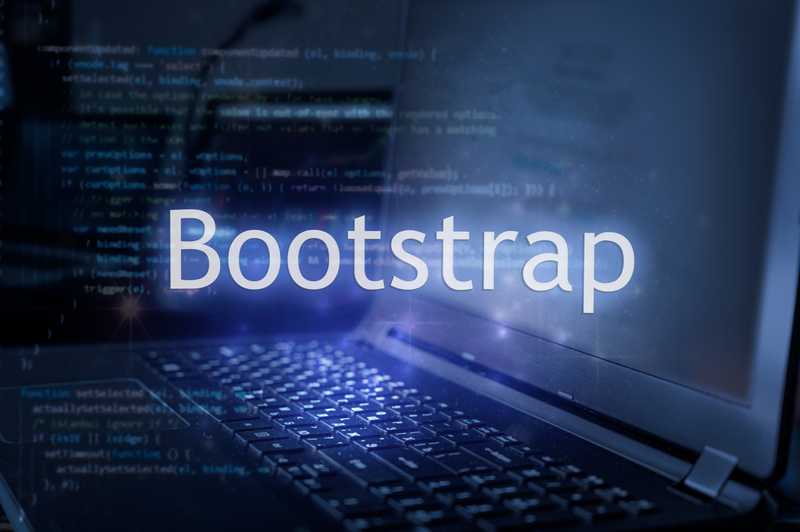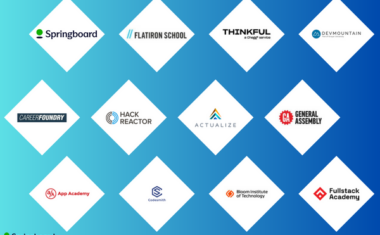The tech industry’s rapid growth has sparked interest in well-paid software engineering roles, drawing many to consider career changes. While some individuals entering this field have a background in software engineering or a relevant college degree, a significant number are starting from zero. These newcomers often turn to coding bootcamps and online courses that provide the necessary skills quickly and cost-effectively, bypassing traditional college education.
According to Course Report, bootcamps can yield earnings comparable to those of a computer science degree but with less investment in time and money. HR professionals at leading tech companies also value practical skills and a candidate’s attitude over the alma mater listed on their CV, highlighting the practical merits of alternative education paths like software development bootcamps.
These bootcamps not only equip candidates with essential software development skills but also prepare them to stand out in the competitive tech job market. They offer a viable entry point into the software engineering profession for individuals without a degree, enabling them to master software applications and programming languages necessary for success.


Become a Software Engineer. Land a Job or Your Money Back.
Code in the industry's most widely used programming languages. Test your knowledge through job-ready projects. Work 1:1 with an industry mentor. Land a job — or your money back.
Table of Contents
Do You Need a Degree To Be a Software Engineer?
The good news is you can become a software engineer without a degree. In fact, it’s not uncommon for bootcamp graduates and self-taught individuals to have an advantage over recent college graduates—several hiring managers have said that fresh graduates lack skill in writing production-ready code. In other words, their capstone projects remain prototypes, so they might not have real-world experience in developing and testing complete solutions.
On the other hand, software development bootcamps and online courses are geared toward making graduates workforce-ready.
How To Become a Software Engineer Without a Degree
Complete a Course
You don’t need a computer science degree to become a software engineer or software developer, but completing a short course or qualification can boost your chances of getting a job. There are two ways you could go about this.
- Your first option is an intensive software engineering bootcamp. These bootcamps are great if you’re already self-taught or have some skills you’d like to refine.
- We’d also recommend completing a Software Engineer Career Track Prep Course. These courses take just 4-6 weeks and will give you all the tools you need to launch your career in software engineering without a degree.
Perfect Your Prerequisites
Software development is a highly technical profession that requires in-depth knowledge of web development tools and platforms, programming languages, and server- and client-side technology. When developing your software engineering skills, be sure to familiarize yourself with the following:
- Containers. Containers allow software engineers to optimize for multiple operating systems. Containers bundle the software that engineers develop into virtual packages that can speak to a variety of different operating systems. As a software developer, proficiency in either Docker or Kubernetes will give you an edge.
- Cloud platforms. As tech continues to shift towards big data, software engineers continue to hone their skills in cloud platforms such as AWS (Amazon Web Services) and GCP (Google Cloud Platform). Cloud platforms allow companies and products to scale and require software engineers to have experience working with cloud-native applications. Products or platforms that promote strengths in data science, artificial intelligence, or machine learning all utilize cloud platforms.
- Version control tools (Github). When a software engineer writes code, they store it in a platform called a “source-control.” If teams of software engineers are all writing code for the same product or application, version control tools allow them to collaborate without interfering with each other’s work. Github is overwhelmingly popular and is the best version control tool for software engineering beginners.
Refine Your Coding Skills
- Python. Currently one of the most popular programming languages in the world, Python allows software engineers to use a common and open-source language for general-purpose programming. Python offers a dynamic feature set that is portable across various operating systems. Python also has automatic memory management – this means that software engineers don’t have to keep manual tabs on memory management. Python is one of the key skills for software engineers today.
- Javascript. Another general-purpose programming language, Java has nearly a two-decade run of being a foundational object-oriented language and one of the most essential skills for software engineers to know. Software engineers trust Java due to its security strength. Also platform-agnostic, Java enables software engineers to use a reliably safe and design-friendly language that can find them jobs almost anywhere.
- SQL. More than 30 years old, SQL is one of the most widespread database languages. Software engineers typically aren’t responsible for maintaining or organizing databases, but they do need to understand how to navigate databases so that they can build programs that speak to them.
- Ruby. Developed in 2011, Ruby is another object-oriented language software engineers utilize to build web applications rapidly. Often, Ruby is paired with the Ruby on Rails framework. Ruby is also open-sourced, and it utilizes automatic memory management (or “garbage collection”) to support multiple programming paradigms or features.
If you have these skills thanks to a coding bootcamp, you can become a software engineer without a degree.
Get To Know Other Software Engineering Students
Promise Morka
Software Engineer at AECOM
Oscar Herrera
Student In The Software Engineering Bootcamp at Springboard
Alyssa Menes
Software Engineer at Progyny
Practice With Coding Projects
If you don’t have work experience, this section is the most important part of your resume. Projects can be anything programming-related, be it a Python script, Java program, webpage, or mobile app. Don’t just list the technologies and languages you know; show how you’ve used them. Assuming you’re submitting an electronic copy of your resume, embed hyperlinks to each project within your resume.
Select projects that show a variety of skills, such as using standard frameworks/libraries, understanding full-stack development, creating mobile apps, and setting up a development environment.
Many software developers use their GitHub profile as both a portfolio and a place where they practice coding projects because it shows potential hiring managers all of the open-source projects you’ve contributed to as well as projects you’ve started. Your dashboard indicates at a glance how often you commit code and how popular your code is. Consequently, GitHub is one of the first destinations hiring managers go to evaluate a candidate’s web presence.
Related Read: Software Developer vs. Software Engineer: What’s the Difference?
When it comes to optimizing your GitHub profile, consistent activity on the site is a key factor. Your profile lists your contributions to repositories with a color-coded heat map broken down by month and year. Each individual contribution needn’t be major—it could be a bug fix, feature suggestion, or commit message—but you should make sure you create proper documentation each time. Remember, a good coder also knows how to write documentation for other humans to engage with their code.
When you create your own project, a well-written ReadMe file is one of the most important parts of a good repository. It tells people:
- What is the code for
- How to build/install the code
- How to contribute to the project
When you contribute to an open-source project, write a detailed commit message to explain why you changed the code. This helps a recruiter assess how well you’ll work on a team.
- The subject line should describe what was changed in 50 characters or less. Also, include a short annotation about the type of commit, such as a big fix, feature, change to the documentation, and so on.
- The body should give a more detailed description of the change. This should typically be 72 characters per line to ensure that the message fits into a terminal window when using Git on the command line.
Network or Find a Mentor
One of the most common ways in which software engineers learn about job opportunities is through word-of-mouth and referrals. Because of this, it’s important to build a network of industry mentors and peers who, in addition to sharing job news, can also offer professional guidance. If you’re currently enrolled in a bootcamp or online course, make the most of the support network of mentors and career counselors available to you. If you’re working for an organization, proactively reach out to software engineers and managers within the company. A mentor can help you become a software engineer without a degree.
Build a Portfolio
Start working on building different applications that showcase your software engineering skills. Think about the kind of position you’d like to hold within a company. Your portfolio should contain a variety of applications to let interviewers see that you can back up the skills highlighted in your resume.
Expand beyond the projects you built for school or through a bootcamp. Talk about how your work on different projects impacted your desire to continue pursuing software engineering. Create projects that highlight your innovation and ability to develop solutions that can benefit companies where you wish to apply. This can help you become a software engineer without a degree.
Consider Related Jobs
Taking a related job or internship can be a great way to gain exposure and experience with the problems and skills a software engineer deals with. For example, internships often offer candidates rotations across different departments, giving interns a chance to work on a variety of projects alongside industry professionals. Alternatively, working as a front-end or backend developer can bolster an individual’s programming skills, develop their understanding of design, and build their experience with working on teams.
Practice Your Interview Skills
The software engineer hiring process typically involves a portfolio, cover letters, and references. Many organizations also use interview loops to measure a candidate’s talent and qualification for a role, which can involve technical interviews, tests that involve writing algorithms, a coding interview, and a series of questions designed to reveal a candidate’s values.
Many of the interview questions—both technical and behavioral—can be challenging, which is why it’s important to prepare as best you can. Many former candidates have shared commonly asked interview questions, mentors and bootcamp instructors can help students workshop their answers, and whether you’re interviewing in person or remotely, read up on the best practices that will ensure a smooth and successful interview.
Work Towards the Job You Want
Similar to considering related jobs, your first job in software engineering might not be the one you want. That said, there is immense value in getting a foot in the door and making lateral moves toward your dream job. For example, if you get your start in web design, you can strengthen your technical skills in front-end development, learning skills such as CSS, HTML, and Java, which will ultimately be useful in a software engineering role.
Alternatively, if you get your start in data science or analytics, the knowledge you develop on data structures, databases, and coding languages such as SQL will make you a stronger software engineer. Every technical and soft skill you gain can bring you closer to the job you want.
Resources To Help You Land a Coding Job Without a Degree
Whether you’re looking to teach yourself software engineering skills, are a recent college graduate looking for hands-on experience with projects, or you’ve finished a coding bootcamp and are looking for ways to practice your new skills, there are many free resources at your disposal.
- CodingBat. CodingBat is a free site of live coding problems using Java and Python. Users don’t have to download or install any software, get immediate in-browser feedback, and can practice writing live code to address short problem statements.
- Try.GitHub.io. A free resource to help you learn Git. If you already understand basic Git commands, this guide will help you understand more challenging concepts such as branch, revert, merge, cherry-pick, rebase, and more.
- Free Code Camp. A nonprofit repository of tutorials, Free Code Camp offers free lessons in HTML, CSS, Java, SQL, and Python. Students can access coding challenges, interact with an online community, and pair up with other students to work on projects.
- Learn Git Branching. Offering both a visual and interactive way to learn Git, Learn Git Branching includes step-by-step demonstrations of powerful Git features, challenging levels, and a sandbox.
- LearnPython.org. As the name suggests, LearnPython.org helps students learn Python through tutorials and interactive coding challenges. The website also has counterparts for other programming languages, such as Java, SQL, Perl, Ruby, PHP, and HTML.
Degree vs. Bootcamp vs. Self-Taught
When considering a career in software engineering without a traditional degree, there are several paths you can take. Each option—bootcamps, self-taught learning, and obtaining a formal degree—offers unique advantages and challenges.
The following table provides a comparative overview to help you understand the key differences between these approaches, focusing on aspects like cost, duration, learning structure, and job market readiness. This can guide you in choosing the path that best aligns with your personal, professional, and financial goals.
Job Options for Software Engineers Without a Degree
Embarking on a software engineering career without a traditional degree is a viable option thanks to the accessibility of bootcamps and the wealth of resources available for self-taught learners.
Here’s a closer look at some roles that are well-suited for individuals who have opted for non-traditional education paths such as bootcamps or self-directed learning.
Each of these roles offers a unique blend of challenges and rewards, making the field of software engineering vibrant and diverse. By leveraging the skills learned through bootcamps and self-study, you can enter the tech industry ready to tackle these positions, even without a traditional degree. This non-conventional education path not only saves time and money but also puts practical, hands-on experience at the forefront, preparing you for real-world challenges in the tech landscape.
FAQs About Becoming a Software Engineer Without a Degree
How Do You Approach The Job Interview Without a College Degree?
You don’t need a degree to become a software engineer or web developer, but not every potential employer sees it that way. That’s why it’s incredibly important to do your prep work: build connections, network online and in-person, build the right skills, learn to solve problems, and gain as much hands-on experience as you can. Many employers in the tech field are happy to consider software engineers who went the self-taught route, so apply anyway, even if you don’t meet the education requirement set out in the job description. You can succeed, regardless of your educational background.
What Percentage of Software Engineers Don’t Have a Degree?
A 2018 survey of software engineers by Overstack Flow found that 27% do not hold any type of college degree. Of all respondents, 86.7% said they had taught themselves programming languages, tools, and frameworks without taking a formal course.
Is Software Engineering Hard to Learn?
Coding can be challenging to learn at first because it involves understanding new concepts and ways of thinking, similar to learning a foreign language. However, with consistent practice, a clear learning path, and the right resources, anyone can develop the skills to become a good software engineer.
Since you’re here…
Were you one of the tens of thousands of workers impacted by this year’s tech layoffs? Springboard wants to help. Our new Career Reboot Scholarship is intended to assist job seekers from tech looking to upskill, reskill and stand out in a competitive hiring environment. Get $1,000 off any Springboard bootcamp in software engineering, data analytics, UX design, cybersecurity, tech sales, and more. Visit this page for eligibility requirements and to apply.






![What Do Full Stack Developers Make [2022 Salary Guide]](https://www.springboard.com/blog/wp-content/uploads/2022/05/what-do-full-stack-developers-make-2022-salary-guide.png)